Piano Sheet Music
 "All the sounds of the earth are like music." Oscar Hammerstein
"All the sounds of the earth are like music." Oscar Hammerstein
Coldplay

Coldplay are a rock band formed in London, England in 1997. The group comprises vocalist/pianist/guitarist Chris Martin, lead guitarist Jonny Buckland, bassist Guy Berryman, and drummer/multi-instrumentalist Will Champion. Coldplay have sold 34.6 million albums, and are also known for their hit singles, such as "Yellow", "The Scientist", "Speed of Sound", "Fix You", "Viva la Vida" and the Grammy Award-winning "Clocks".
Coldplay achieved worldwide fame with the release of their single "Yellow", followed by their debut album, Parachutes (2000), which was nominated for the Mercury Prize. Its follow-up, A Rush of Blood to the Head (2002) won multiple awards such as NME's Album of the Year and was later included on Rolling Stone magazine's 500 Greatest Albums of All Time list, ranking at #473. Their next release, X&Y (2005), received a slightly less enthusiastic yet still generally positive reception. The band's fourth studio album, Viva la Vida or Death and All His Friends (2008), was produced by Brian Eno and released again to largely favourable reviews. All of Coldplay's albums have enjoyed great commercial success.
Coldplay's early material was compared to acts such as Jeff Buckley, U2, and Travis. Coldplay have been an active supporter of various social and political causes, such as Oxfam's Make Trade Fair campaign and Amnesty International. The group have also performed at various charity projects such as Band Aid 20, Live 8, and the Teenage Cancer Trust.
Coldplay achieved worldwide fame with the release of their single "Yellow", followed by their debut album, Parachutes (2000), which was nominated for the Mercury Prize. Its follow-up, A Rush of Blood to the Head (2002) won multiple awards such as NME's Album of the Year and was later included on Rolling Stone magazine's 500 Greatest Albums of All Time list, ranking at #473. Their next release, X&Y (2005), received a slightly less enthusiastic yet still generally positive reception. The band's fourth studio album, Viva la Vida or Death and All His Friends (2008), was produced by Brian Eno and released again to largely favourable reviews. All of Coldplay's albums have enjoyed great commercial success.
Coldplay's early material was compared to acts such as Jeff Buckley, U2, and Travis. Coldplay have been an active supporter of various social and political causes, such as Oxfam's Make Trade Fair campaign and Amnesty International. The group have also performed at various charity projects such as Band Aid 20, Live 8, and the Teenage Cancer Trust.
Billy Joel

William Martin Joel (born May 9, 1949) is an American pianist and singer-songwriter. He released his first hit song, "Piano Man", in 1973. According to the RIAA, he is the sixth best-selling recording artist in the United States.
Joel had Top 10 hits in the '70s, '80s, and '90s; is a six-time Grammy Award winner, and has sold in excess of 150 million albums worldwide. He was inducted into the Songwriter's Hall of Fame (Class of 1992), the Rock and Roll Hall of Fame (Class of 1999), and the Long Island Music Hall of Fame (Class of 2006). Joel "retired" from recording pop music in 1993 but continued to tour (sometimes with Elton John). In 2001 he subsequently released Fantasies & Delusions, a CD of classical compositions for piano. In 2007 he returned to recording with a single entitled "All My Life," followed by an extensive "World Tour" from 2006-2008, covering many of the major world cities.
Joel had Top 10 hits in the '70s, '80s, and '90s; is a six-time Grammy Award winner, and has sold in excess of 150 million albums worldwide. He was inducted into the Songwriter's Hall of Fame (Class of 1992), the Rock and Roll Hall of Fame (Class of 1999), and the Long Island Music Hall of Fame (Class of 2006). Joel "retired" from recording pop music in 1993 but continued to tour (sometimes with Elton John). In 2001 he subsequently released Fantasies & Delusions, a CD of classical compositions for piano. In 2007 he returned to recording with a single entitled "All My Life," followed by an extensive "World Tour" from 2006-2008, covering many of the major world cities.
Carter Burwell
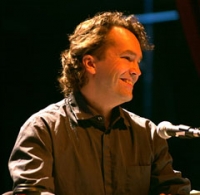
Carter Burwell (born November 18, 1955) is an American composer of film scores.
Burwell was born in New York City. He graduated from King School in Stamford, Connecticut, and Harvard College.
As a film composer, Burwell has had a long working relationship with the Coen Brothers, providing music for every film they have made (except for O Brother, Where Art Thou?, where he simply provided additional music to a score primarily composed by T Bone Burnett). He enjoys working with left-field directors and has also scored Spike Jonze's films. Among his best known film scores are And the Band Played On (1993), Conspiracy Theory (1997), Hamlet (2000), The Spanish Prisoner (1997), Before the Devil Knows You're Dead (2007), In Bruges (2008) and Twilight (2008).
Burwell, like many composers, studied piano. Starting lessons when he was 7, he studied Mozart mostly, but eventually quit.
In April 2005, Burwell composed and conducted music, performed by The Parabola Ensemble, for the plays "Sawbones" written and directed by the Coen Brothers, "Hope Leaves the Theater" written and directed by Charlie Kaufman and "Anomalisa" written and directed by Francis Fregoli. This was a segment of the sound-only production Theater of the New Ear, which debuted at St. Ann's Warehouse in Brooklyn, NY with support from Sirius Satellite Radio, United Talent Agency and Sony Pictures.
Burwell married Christine Sciulli in 1999.
Burwell was born in New York City. He graduated from King School in Stamford, Connecticut, and Harvard College.
As a film composer, Burwell has had a long working relationship with the Coen Brothers, providing music for every film they have made (except for O Brother, Where Art Thou?, where he simply provided additional music to a score primarily composed by T Bone Burnett). He enjoys working with left-field directors and has also scored Spike Jonze's films. Among his best known film scores are And the Band Played On (1993), Conspiracy Theory (1997), Hamlet (2000), The Spanish Prisoner (1997), Before the Devil Knows You're Dead (2007), In Bruges (2008) and Twilight (2008).
Burwell, like many composers, studied piano. Starting lessons when he was 7, he studied Mozart mostly, but eventually quit.
In April 2005, Burwell composed and conducted music, performed by The Parabola Ensemble, for the plays "Sawbones" written and directed by the Coen Brothers, "Hope Leaves the Theater" written and directed by Charlie Kaufman and "Anomalisa" written and directed by Francis Fregoli. This was a segment of the sound-only production Theater of the New Ear, which debuted at St. Ann's Warehouse in Brooklyn, NY with support from Sirius Satellite Radio, United Talent Agency and Sony Pictures.
Burwell married Christine Sciulli in 1999.
John Kander
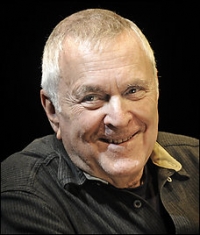
John Harold Kander is the American composer of a number of musicals as part of the songwriting team of Kander and Ebb. His best-known stage musicals as composer are Cabaret and Chicago, both of which were later adapted into films.
Traditional

traditional music
Leona Lewis

Leona Louise Lewis (born 3 April 1985) is an English pop and R&B singer-songwriter, and the winner of the third series of UK television talent show The X Factor. Her UK debut single, "A Moment Like This", broke a world record after it was downloaded over 50,000 times within 30 minutes.
Her second single, "Bleeding Love", was the biggest-selling single of 2007 in the UK, topped over thirty national singles charts and became a number one single on the first week in France and number one in the United States.
Her debut album, Spirit, was released in Europe in November 2007, and became the fastest-selling debut album ever in both the United Kingdom and Ireland. Released in North America in April 2008, Spirit debuted at number one on the US Billboard 200 chart and made Lewis the first British solo artist to top the chart with a debut album.
With her album reaching number one in at least three continents and nine countries, Lewis has had one of the most successful launches of any television talent show contestant ever.
Her second single, "Bleeding Love", was the biggest-selling single of 2007 in the UK, topped over thirty national singles charts and became a number one single on the first week in France and number one in the United States.
Her debut album, Spirit, was released in Europe in November 2007, and became the fastest-selling debut album ever in both the United Kingdom and Ireland. Released in North America in April 2008, Spirit debuted at number one on the US Billboard 200 chart and made Lewis the first British solo artist to top the chart with a debut album.
With her album reaching number one in at least three continents and nine countries, Lewis has had one of the most successful launches of any television talent show contestant ever.
Nina Girado

Marifil Nina Barinos Girado-Enriquez, known professionally as Nina, is a Filipina singer, occasional songwriter, record producer, TV and radio personality. She made her recording debut in 2002 after signing a recording contract with Warner Music Philippines.
Rihanna

Rihanna (born Robyn Rihanna Fenty; February 20, 1988) is a Barbadian singer, model and fashion designer. She is the second artist, and first female, from Barbados to have received a Grammy Award (the first being Jimmy Senya Haynes). Rihanna is currently signed to the Def Jam Recordings label. She has attained four Billboard Hot 100 number ones thus far ("SOS", "Umbrella", "Take a Bow", and "Disturbia"), tying her with Mariah Carey and Beyoncé as the female solo artist with the most number ones this decade.
Rihanna came to fame in 2005 with the release of her debut album Music of the Sun, which featured her breakthrough single "Pon de Replay". Less than a year later, Rihanna released A Girl Like Me and gave her first number one single, "SOS". In 2007, Rihanna released her third studio album, Good Girl Gone Bad. The album has yielded six hit singles including five worldwide number one singles "Umbrella", "Don't Stop the Music" and "Take A Bow". Since the release of her debut album, Rihanna has amassed eleven top 40 hit singles in the U.S.
Rihanna came to fame in 2005 with the release of her debut album Music of the Sun, which featured her breakthrough single "Pon de Replay". Less than a year later, Rihanna released A Girl Like Me and gave her first number one single, "SOS". In 2007, Rihanna released her third studio album, Good Girl Gone Bad. The album has yielded six hit singles including five worldwide number one singles "Umbrella", "Don't Stop the Music" and "Take A Bow". Since the release of her debut album, Rihanna has amassed eleven top 40 hit singles in the U.S.
Simply Red
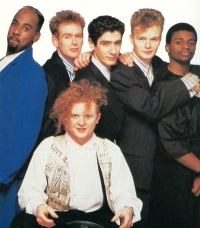
Simply Red is an English pop band. Their style draws influences from pop, rock, jazz, lovers rock, and blue-eyed soul. Over time, the name "Simply Red" has come to refer less to a specific group of musicians, and is widely regarded as a name for Mick Hucknall's recordings.
Simply Red's roots originate from the 1976 Sex Pistols gig at the Lesser Free Trade Hall in Manchester. Manchester art student Mick Hucknall was one of the many young music fans present, along with original members of Joy Division, The Smiths and Buzzcocks, who were inspired to form a band after witnessing that gig). The first incarnation of the band was a punk group called The Frantic Elevators. This band existed for 7 years, with limited releases on local labels, but split in 1984 with only limited local attention and critical acclaim for their final single, "Holding Back the Years".
Members:
Mick Hucknall, Steve Lewinson, Kevin Robinson, Pete Lewinson, Dee Johnson, Ian Kirkham, Kenji Suzuki, Chris De Margary, Sarah Brown, John Johnson
Simply Red's roots originate from the 1976 Sex Pistols gig at the Lesser Free Trade Hall in Manchester. Manchester art student Mick Hucknall was one of the many young music fans present, along with original members of Joy Division, The Smiths and Buzzcocks, who were inspired to form a band after witnessing that gig). The first incarnation of the band was a punk group called The Frantic Elevators. This band existed for 7 years, with limited releases on local labels, but split in 1984 with only limited local attention and critical acclaim for their final single, "Holding Back the Years".
Members:
Mick Hucknall, Steve Lewinson, Kevin Robinson, Pete Lewinson, Dee Johnson, Ian Kirkham, Kenji Suzuki, Chris De Margary, Sarah Brown, John Johnson
Tomaso Albinoni
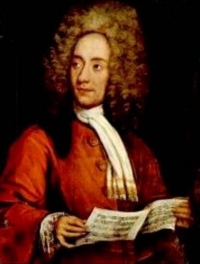
Tomaso Giovanni Albinoni (8 June 1671 – 17 January 1751) was an Italian Baroque composer. While famous in his day as an opera composer, he is known today for his instrumental music, especially his concertos. He is also remembered today for a work called "Adagio in G minor", supposedly written by him, but probably written by Remo Giazotto, a modern musicologist and composer, who was a cataloger of the works of Albinoni.
Eric Whitacre

Eric Edward Whitacre (born January 2, 1970) is an American composer, conductor, and speaker known for his choral, orchestral, and wind ensemble music. In March 2016, he was appointed as Los Angeles Master Chorale's first artist-in-residence at the Walt Disney Concert Hall.
Mai Otome

My-Otome is an anime series created by Sunrise. Directed by Masakazu Obara and written by Hiroyuki Yoshino, it is a spinoff of My-HiME anime series and as such My-Otome takes place in a new setting with new main characters. The series originally premiered on TV Tokyo from October 6, 2005 to March 30, 2006.
Zequinha de Abreu
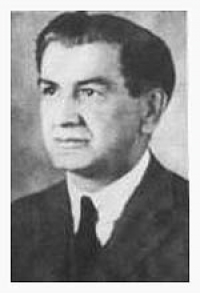
José Gomes de Abreu, better known as Zequinha de Abreu (September 19, 1880 — January 22, 1935), was a Brazilian musician and composer who in 1917 wrote the famous choro tune "Tico-Tico no Fubá" (whose original title was "Tico-Tico no Farelo"). Other well-known tunes he wrote were "Branca" and "Tardes de Lindóia."
Miss Saigon
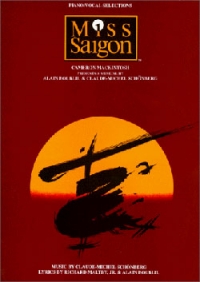
Miss Saigon is a West End musical by Claude-Michel Schönberg and Alain Boublil, with lyrics by Boublil and Richard Maltby, Jr. It premiered at the Theatre Royal, Drury Lane, in London on September 20, 1989, closing after 4,264 performances on October 30, 1999. On April 11, 1991, it opened at the Broadway Theatre in New York City, and closed on January 28, 2001 after 4,092 performances. The musical represented Schönberg and Boublil's second major success, following Les Misérables in 1980. As of August 2007, Miss Saigon is still the 10th longest-running Broadway musical in musical theatre history.
Miss Saigon is a modern adaptation of Giacomo Puccini's opera Madame Butterfly, and similarly tells the tragic tale of a doomed romance involving an Asian woman abandoned by her American lover. The setting of the plot is relocated to the 1970s Saigon during the Vietnam War, and Madame Butterfly's American Lieutenant and Japanese geisha coupling is replaced by a romance between an American GI and a Vietnamese bar girl.
The show's inspiration was reportedly a photograph, inadvertently found by Schönberg in a magazine. The photo showed a Vietnamese mother leaving her child at a departure gate at Tan Son Nhut Air Base to board a plane headed for the United States where her father, an ex-GI, would be in a position to provide a much better life for the child. Schönberg considered this mother's actions for her child to be "The Ultimate Sacrifice," an idea central to the plot of Miss Saigon.
Highlights of the show include the evacuation of the last Americans in Saigon from the Embassy roof by helicopter while a crowd of abandoned Vietnamese scream their despair, the victory parade of the new communist regime and the frenzied night club scene on the edge of defeat.
Miss Saigon was part of the major British influence on Broadway in the 1980s, along with the musicals Cats, The Phantom of the Opera, and Les Misérables.
Miss Saigon is a modern adaptation of Giacomo Puccini's opera Madame Butterfly, and similarly tells the tragic tale of a doomed romance involving an Asian woman abandoned by her American lover. The setting of the plot is relocated to the 1970s Saigon during the Vietnam War, and Madame Butterfly's American Lieutenant and Japanese geisha coupling is replaced by a romance between an American GI and a Vietnamese bar girl.
The show's inspiration was reportedly a photograph, inadvertently found by Schönberg in a magazine. The photo showed a Vietnamese mother leaving her child at a departure gate at Tan Son Nhut Air Base to board a plane headed for the United States where her father, an ex-GI, would be in a position to provide a much better life for the child. Schönberg considered this mother's actions for her child to be "The Ultimate Sacrifice," an idea central to the plot of Miss Saigon.
Highlights of the show include the evacuation of the last Americans in Saigon from the Embassy roof by helicopter while a crowd of abandoned Vietnamese scream their despair, the victory parade of the new communist regime and the frenzied night club scene on the edge of defeat.
Miss Saigon was part of the major British influence on Broadway in the 1980s, along with the musicals Cats, The Phantom of the Opera, and Les Misérables.
Ciprian Porumbescu
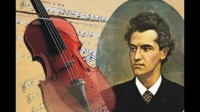
Ciprian Porumbescu was a Romanian composer born in Șipotele Sucevei in Bukovina. He was among the most celebrated Romanian composers of his time; his popular works include Crai nou, Trei culori, Song for the 1st of May, Ballad for violin and piano, and Serenada. Born: October 14, 1853, Bukovina Died: June 6, 1883, Ciprian Porumbescu, Suceava, Romania
Education: University of Music and Performing Arts, Vienna Parents: Iraclie Porumbescu, Emilia Golembiovski
Record labels: Electrecord, VDE-GALLO, Marcophon Grandparents: Atanasie Golembiovski, Varvara Crăciun
Education: University of Music and Performing Arts, Vienna Parents: Iraclie Porumbescu, Emilia Golembiovski
Record labels: Electrecord, VDE-GALLO, Marcophon Grandparents: Atanasie Golembiovski, Varvara Crăciun
Keith Jarrett

Keith Jarrett (born May 8, 1945 in Allentown, Pennsylvania) is an American pianist and composer.
His career started with Art Blakey, Charles Lloyd and Miles Davis. Since the early 1970s he has enjoyed a great deal of success in both classical music and jazz, as a group leader and a solo performer. His improvisation technique combines not only jazz, but also other forms of music, especially classical, gospel, blues and ethnic folk music.
In 2003 he received the Polar Music Prize, being the first (and to this day only) recipient not sharing the prize with anyone else.
His career started with Art Blakey, Charles Lloyd and Miles Davis. Since the early 1970s he has enjoyed a great deal of success in both classical music and jazz, as a group leader and a solo performer. His improvisation technique combines not only jazz, but also other forms of music, especially classical, gospel, blues and ethnic folk music.
In 2003 he received the Polar Music Prize, being the first (and to this day only) recipient not sharing the prize with anyone else.
Zbigniew Preisner

Zbigniew Preisner (Polish: ; born 20 May 1955 as Zbigniew Antoni Kowalski) is a Polish film score composer, best known for his work with film director Krzysztof KieślowskiZbigniew Preisner was born in Bielsko-Biała, and studied history and philosophy in Kraków. Never having received formal music lessons, he taught himself music by listening and transcribing parts from records. His compositional style represents a distinctively spare form of tonal neo-Romanticism. Paganini and Jean Sibelius are acknowledged influences.
Bach

Johann Sebastian Bach (31 March 1685 – 28 July 1750) was a German composer and organist whose sacred and secular works for choir, orchestra, and solo instruments drew together the strands of the Baroque period and brought it to its ultimate maturity. Although he introduced no new forms, he enriched the prevailing German style with a robust contrapuntal technique, an unrivalled control of harmonic and motivic organisation in composition for diverse musical forces, and the adaptation of rhythms and textures from abroad, particularly Italy and France.
Revered for their intellectual depth and technical and artistic beauty, Bach's works include the Brandenburg concertos; the Goldberg Variations; the English Suites, French Suites, Partitas, and Well-Tempered Clavier; the Mass in B Minor; the St. Matthew Passion; the St. John Passion; The Musical Offering; The Art of Fugue; the Sonatas and Partitas for violin solo; the Cello Suites; more than 200 surviving cantatas; and a similar number of organ works, including the celebrated Toccata and Fugue in D Minor.
While Bach's fame as an organist was great during his lifetime, he was not particularly well-known as a composer. His adherence to Baroque forms and contrapuntal style was considered "old-fashioned" by his contemporaries, especially late in his career when the musical fashion tended towards Rococo and later Classical styles. A revival of interest and performances of his music began early in the 19th century, and he is now widely considered to be one of the greatest composers in the Western tradition.
Revered for their intellectual depth and technical and artistic beauty, Bach's works include the Brandenburg concertos; the Goldberg Variations; the English Suites, French Suites, Partitas, and Well-Tempered Clavier; the Mass in B Minor; the St. Matthew Passion; the St. John Passion; The Musical Offering; The Art of Fugue; the Sonatas and Partitas for violin solo; the Cello Suites; more than 200 surviving cantatas; and a similar number of organ works, including the celebrated Toccata and Fugue in D Minor.
While Bach's fame as an organist was great during his lifetime, he was not particularly well-known as a composer. His adherence to Baroque forms and contrapuntal style was considered "old-fashioned" by his contemporaries, especially late in his career when the musical fashion tended towards Rococo and later Classical styles. A revival of interest and performances of his music began early in the 19th century, and he is now widely considered to be one of the greatest composers in the Western tradition.
Brahms

Johannes Brahms (May 7, 1833 â April 3, 1897) was a German composer of the Romantic period. He was born in Hamburg and in his later years he settled in Vienna, Austria.
Brahms maintained a Classical sense of form and order in his works â in contrast to the opulence of the music of many of his contemporaries. Thus many admirers (though not necessarily Brahms himself) saw him as the champion of traditional forms and "pure music," as opposed to the New German embrace of program music.
Brahms venerated Beethoven: in the composer's home, a marble bust of Beethoven looked down on the spot where he composed, and some passages in his works are reminiscent of Beethoven's style. The main theme of the finale of Brahms's First Symphony is reminiscent of the main theme of the finale of Beethoven's Ninth, and when this resemblance was pointed out to Brahms he replied that any ass â jeder Esel â could see that.
Ein deutsches Requiem was partially inspired by his mother's death in 1865, but also incorporates material from a Symphony he started in 1854, but abandoned following Schumann's suicide attempt. He once wrote that the Requiem "belonged to Schumann". The first movement of this abandoned Symphony was re-worked as the first movement of the First Piano Concerto.
Brahms also loved the Classical composers Mozart and Haydn. He collected first editions and autographs of their works, and edited performing editions. He also studied the music of pre-classical composers, including Giovanni Gabrieli, Johann Adolph Hasse, Heinrich Schütz and especially Johann Sebastian Bach. His friends included leading musicologists, and with Friedrich Chrysander he edited an edition of the works of François Couperin. He looked to older music for inspiration in the arts of strict counterpoint; the themes of some of his works are modelled on Baroque sources, such as Bach's The Art of Fugue in the fugal finale of Cello Sonata No. 1, or the same composer's Cantata No. 150 in the passacaglia theme of the Fourth Symphony's finale.
Brahms maintained a Classical sense of form and order in his works â in contrast to the opulence of the music of many of his contemporaries. Thus many admirers (though not necessarily Brahms himself) saw him as the champion of traditional forms and "pure music," as opposed to the New German embrace of program music.
Brahms venerated Beethoven: in the composer's home, a marble bust of Beethoven looked down on the spot where he composed, and some passages in his works are reminiscent of Beethoven's style. The main theme of the finale of Brahms's First Symphony is reminiscent of the main theme of the finale of Beethoven's Ninth, and when this resemblance was pointed out to Brahms he replied that any ass â jeder Esel â could see that.
Ein deutsches Requiem was partially inspired by his mother's death in 1865, but also incorporates material from a Symphony he started in 1854, but abandoned following Schumann's suicide attempt. He once wrote that the Requiem "belonged to Schumann". The first movement of this abandoned Symphony was re-worked as the first movement of the First Piano Concerto.
Brahms also loved the Classical composers Mozart and Haydn. He collected first editions and autographs of their works, and edited performing editions. He also studied the music of pre-classical composers, including Giovanni Gabrieli, Johann Adolph Hasse, Heinrich Schütz and especially Johann Sebastian Bach. His friends included leading musicologists, and with Friedrich Chrysander he edited an edition of the works of François Couperin. He looked to older music for inspiration in the arts of strict counterpoint; the themes of some of his works are modelled on Baroque sources, such as Bach's The Art of Fugue in the fugal finale of Cello Sonata No. 1, or the same composer's Cantata No. 150 in the passacaglia theme of the Fourth Symphony's finale.
Chicago
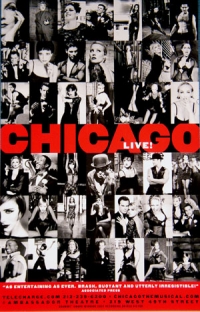
Chicago is a Kander and Ebb musical set in prohibition era Chicago. The book is by Ebb and Bob Fosse. The story is a satire on corruption in the administration of criminal justice, and the concept of the "celebrity criminal." The musical is based on a 1926 play of the same name by reporter Maurine Dallas Watkins about actual criminals and crimes she had reported on.
The original 1975 Broadway production ran for a total of 936 performances. Bob Fosse choreographed the original production, and his style is strongly identified with the show. Chicago's 1996 Broadway revival holds the record for the longest-running musical revival on Broadway (not counting the revue Oh! Calcutta!) and, as of March 2, 2008, it has played for more than 4,684 performances. The revival was followed by a production on London's West End and several tours and international productions. An Academy Award-winning film version of the musical was released in 2002.
The original 1975 Broadway production ran for a total of 936 performances. Bob Fosse choreographed the original production, and his style is strongly identified with the show. Chicago's 1996 Broadway revival holds the record for the longest-running musical revival on Broadway (not counting the revue Oh! Calcutta!) and, as of March 2, 2008, it has played for more than 4,684 performances. The revival was followed by a production on London's West End and several tours and international productions. An Academy Award-winning film version of the musical was released in 2002.
Pink Floyd
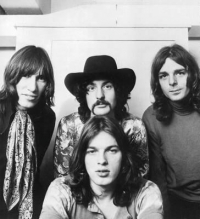
Pink Floyd are an English rock band from Cambridge. The band initially earned recognition for their psychedelic and space rock music, and, as they evolved, for their progressive rock music. Pink Floyd are known for philosophical lyrics, sonic experimentation, innovative album cover art, and elaborate live shows. One of rock music's most successful acts, the group have sold over 200 million albums worldwide including 74.5 million albums in the United States alone. Pink Floyd have influenced progressive rock artists of the 1970s such as Genesis and Yes; and contemporary artists such as Nine Inch Nails and Dream Theater.
Pink Floyd had moderate mainstream success and were one of the most popular bands in the London underground music scene in the late 1960s as a psychedelic band led by Syd Barrett. However, Barrett's erratic behaviour eventually forced his colleagues to replace him with guitarist and singer David Gilmour. After Barrett's departure, singer and bass player Roger Waters gradually became the dominant and driving force in the group by the late-1970s, until his eventual departure from the group in 1985. The band recorded several albums, achieving worldwide success with The Dark Side of the Moon (1973), Wish You Were Here (1975), Animals (1977), and The Wall (1979).
In 1985, Waters declared Pink Floyd "a spent force", but the remaining members, led by Gilmour, continued recording and touring under the name Pink Floyd. Waters sued them for the name and eventually they reached a settlement out of court, under which Gilmour, Mason and Wright would continue as Pink Floyd. They again enjoyed worldwide success with A Momentary Lapse of Reason (1987) and The Division Bell (1994). Waters performed with the band for the first time in 24 years on 2 July 2005 at the London Live 8 concert.
Pink Floyd had moderate mainstream success and were one of the most popular bands in the London underground music scene in the late 1960s as a psychedelic band led by Syd Barrett. However, Barrett's erratic behaviour eventually forced his colleagues to replace him with guitarist and singer David Gilmour. After Barrett's departure, singer and bass player Roger Waters gradually became the dominant and driving force in the group by the late-1970s, until his eventual departure from the group in 1985. The band recorded several albums, achieving worldwide success with The Dark Side of the Moon (1973), Wish You Were Here (1975), Animals (1977), and The Wall (1979).
In 1985, Waters declared Pink Floyd "a spent force", but the remaining members, led by Gilmour, continued recording and touring under the name Pink Floyd. Waters sued them for the name and eventually they reached a settlement out of court, under which Gilmour, Mason and Wright would continue as Pink Floyd. They again enjoyed worldwide success with A Momentary Lapse of Reason (1987) and The Division Bell (1994). Waters performed with the band for the first time in 24 years on 2 July 2005 at the London Live 8 concert.
Chopin

Frédéric Chopin (1 March 1810 – 17 October 1849) was a Polish composer and virtuoso pianist of the Romantic period. He is widely regarded as the greatest Polish composer, and ranks as one of music's greatest tone poets.
He was born in the village of Żelazowa Wola, in the Duchy of Warsaw, to a Polish mother and French-expatriate father, and in his early life was regarded as a child-prodigy pianist. In November 1830, at the age of 20, Chopin went abroad; following the suppression of the Polish November Uprising of 1830–31, he became one of many expatriates of the Polish "Great Emigration."
In Paris, he made a comfortable living as a composer and piano teacher, while giving few public performances. A Polish patriot,
Chopin's extant compositions were written primarily for the piano as a solo instrument. Though technically demanding, Chopin's style emphasizes nuance and expressive depth rather than virtuosity. Chopin invented musical forms such as the ballade and was responsible for major innovations in forms such as the piano sonata, waltz, nocturne, étude, impromptu and prelude. His works are mainstays of Romanticism in 19th-century classical music.
He was born in the village of Żelazowa Wola, in the Duchy of Warsaw, to a Polish mother and French-expatriate father, and in his early life was regarded as a child-prodigy pianist. In November 1830, at the age of 20, Chopin went abroad; following the suppression of the Polish November Uprising of 1830–31, he became one of many expatriates of the Polish "Great Emigration."
In Paris, he made a comfortable living as a composer and piano teacher, while giving few public performances. A Polish patriot,
Chopin's extant compositions were written primarily for the piano as a solo instrument. Though technically demanding, Chopin's style emphasizes nuance and expressive depth rather than virtuosity. Chopin invented musical forms such as the ballade and was responsible for major innovations in forms such as the piano sonata, waltz, nocturne, étude, impromptu and prelude. His works are mainstays of Romanticism in 19th-century classical music.
Koji Kondo

Koji Kondo (近藤浩治 Kondō Kōji?, born August 13, 1960) is a Japanese video game composer and sound director who has been employed at Nintendo since 1984. He is best known for scoring numerous titles in the Mario and The Legend of Zelda series.
Alice Hawthorne
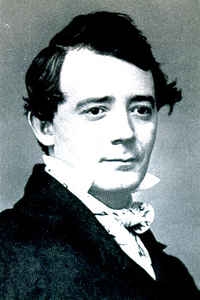
Septimus Winner also went by the pseudonym of Alice Hawthorne. He composed a number of songs, wrote poetry, and taught music -- lessons in his music shop were given for a number of different instruments. Having edited over 200 volumes for more than 20 different instruments, Winner brought music to the general public like no person before him. Most of his original music was written for children and included "Listen to the Mocking Bird," "Ten Little Injuns," and "The Deutcher's Dog (Oh where, oh where ish mine little dog gone)."
Stevie Nicks
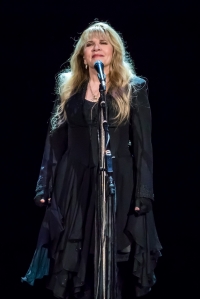
Stephanie Lynn "Stevie" Nicks (born May 26, 1948) is an American singer and songwriter known for her work with the band Fleetwood Mac and as a solo artist. She is known for her distinctive voice, mystical stage persona and poetic, symbolic lyrics.Nicks joined Fleetwood Mac in 1975 along with her then-boyfriend Lindsey Buckingham. In 1981, while remaining a member of Fleetwood Mac, Nicks began her solo career, releasing the studio album Bella Donna, which topped the Billboard 200 and has reached multiplatinum status. She has released eight solo studio albums.
André Gagnon
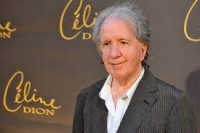
André Gagnon OC OQ (2 August 1936 – 3 December 2020) was a Canadian composer, conductor, arranger, and actor, known for his fusion of classical and pop styles, including compositions Neiges, Smash, Chevauchée, Surprise, Donna, and Mouvements in the disco and pop fields. Gagnon also composed for television, including La Souris Verte, Vivre en ce Pays, Format 60, Format 30,Techno-Flash, and Les Forges de Saint-Maurice as well as for theatre with such productions as La Poudre aux Yeux, Doña Rosita, Terre d'Aube, La Dame de Chez Maxim's, and Wouf-Wouf. Some of his most notable songs are "Pour les Amants", "Turluteries", and "Mes Quatre Saisons".
Msgr. Rudy Villanueva
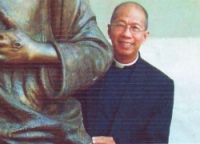
Since Vatican II gave increased importance to music of the local church, Monsignor Rodolfo E. Villanueva, head of Cebu’s Sub-commission on Sacred Music, has been supplying the Vis-Min area with music for the Catholic liturgy. But Cebuanos in general know him simply as Fr. Rudy.
Ordained in 1963, a graduate of Cebu’s San Carlos Major Seminary, he proceeded to Graduate studies in English Literature at Santo Tomas University, and two years after received a scholarship from Serra International, which took him to the State University in Minnesota where he earned a BM in Piano and Master’s in Music Composition. His years as accompanist for the Schola Cantorum at the seminary and for the Pro Musica Antiqua and the composite chorus at University very much shaped his musical interests. Thus, following his studies, he has composed mostly choral and solo vocal music, while coaching quite a few Cebu choral groups. To date, book publications and sound recordings of his music involve singing, while an extended work-in-progress is a theater-piece tentatively called Leon Kilat: A Cebuano Opera.
Ordained in 1963, a graduate of Cebu’s San Carlos Major Seminary, he proceeded to Graduate studies in English Literature at Santo Tomas University, and two years after received a scholarship from Serra International, which took him to the State University in Minnesota where he earned a BM in Piano and Master’s in Music Composition. His years as accompanist for the Schola Cantorum at the seminary and for the Pro Musica Antiqua and the composite chorus at University very much shaped his musical interests. Thus, following his studies, he has composed mostly choral and solo vocal music, while coaching quite a few Cebu choral groups. To date, book publications and sound recordings of his music involve singing, while an extended work-in-progress is a theater-piece tentatively called Leon Kilat: A Cebuano Opera.
Cliff Richard

Sir Cliff Richard, (born Harry Roger Webb on 14 October 1940) is an English singer, actor and businessman.
With his backing band The Shadows, Richard dominated the British popular music scene in the late 1950s and early 1960s, before and during the The Beatles' first year in the charts. A conversion to Christianity and subsequent softening of his music led to his having more of a pop than rock image. He never achieved the same impact in the United States despite several chart singles there, but he has remained a popular music, film, and television personality in the UK and he retains a following in other countries.
"Living Doll" is a popular song by Cliff Richard and the Shadows (then still The Drifters).
Written by Lionel Bart it was originally recorded in 1959 by Cliff Richard and the Drifters and produced by Norrie Paramor. It peaked at #1 on the UK singles chart for six weeks from July 1959, selling over a million copies in the process. The song won Bart an Ivor Novello Award for best song. The song was Richard's first US hit single reaching #30 on the Billboard Hot 100. It is featured in the film Serious Charge and was also released on the Serious Charge 7" EP (Columbia SEG 7895).
With his backing band The Shadows, Richard dominated the British popular music scene in the late 1950s and early 1960s, before and during the The Beatles' first year in the charts. A conversion to Christianity and subsequent softening of his music led to his having more of a pop than rock image. He never achieved the same impact in the United States despite several chart singles there, but he has remained a popular music, film, and television personality in the UK and he retains a following in other countries.
"Living Doll" is a popular song by Cliff Richard and the Shadows (then still The Drifters).
Written by Lionel Bart it was originally recorded in 1959 by Cliff Richard and the Drifters and produced by Norrie Paramor. It peaked at #1 on the UK singles chart for six weeks from July 1959, selling over a million copies in the process. The song won Bart an Ivor Novello Award for best song. The song was Richard's first US hit single reaching #30 on the Billboard Hot 100. It is featured in the film Serious Charge and was also released on the Serious Charge 7" EP (Columbia SEG 7895).
Martina McBride
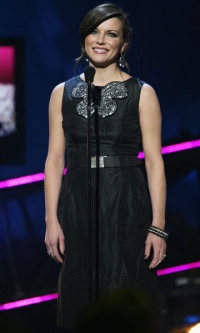
Martina McBride (born Martina Mariea Schiff, July 29, 1966 in Sharon, Kansas, USA) is an American country-pop music singer-songwriter. She made her debut in 1992 with the release of her album The Time Has Come; however, it was not until the release of her second album, The Way That I Am, that she first had a major hit with "My Baby Loves Me", which in late 1993 peaked at #1 on the U.S. Billboard Hot Country Singles & Tracks charts.
She rose to stardom in the late '90s, starting out with a more traditionalist approach and moving into pop-friendlier territory.
Between 1992 and the present, Martina has recorded a total of ten albums: seven studio albums, a Greatest Hits package, a compilation of covers, and an album of Christmas music. Of these ten albums, two are certified gold, and seven are certified platinum or higher. To date, she has also charted more than thirty singles on the U.S. country singles charts. Her biggest hit to date has been "I Love You", which spent five weeks at Number One in the autumn of 1999. In all, Martina has scored six Number One singles: five on the U.S. Billboard country charts, and one on the Billboard Adult Contemporary charts. In addition, Martina has won the Country Music Association's "Female Vocalist of the Year" four times (tied with Reba McEntire for the most wins), and the Academy of Country Music's "Top Female Vocalist" award three times.
According to those who know her songs and her voice, she has been called "Celine Dion of Country Music" on account of her soprano vocals. Martina has sold over 16 million albums worldwide.
She rose to stardom in the late '90s, starting out with a more traditionalist approach and moving into pop-friendlier territory.
Between 1992 and the present, Martina has recorded a total of ten albums: seven studio albums, a Greatest Hits package, a compilation of covers, and an album of Christmas music. Of these ten albums, two are certified gold, and seven are certified platinum or higher. To date, she has also charted more than thirty singles on the U.S. country singles charts. Her biggest hit to date has been "I Love You", which spent five weeks at Number One in the autumn of 1999. In all, Martina has scored six Number One singles: five on the U.S. Billboard country charts, and one on the Billboard Adult Contemporary charts. In addition, Martina has won the Country Music Association's "Female Vocalist of the Year" four times (tied with Reba McEntire for the most wins), and the Academy of Country Music's "Top Female Vocalist" award three times.
According to those who know her songs and her voice, she has been called "Celine Dion of Country Music" on account of her soprano vocals. Martina has sold over 16 million albums worldwide.
Athur Laurent
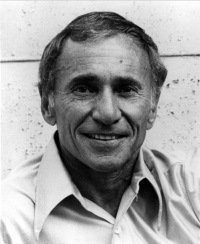
Arthur Laurents (July 14, 1917 – May 5, 2011) was an American playwright, stage director and screenwriter.
After writing scripts for radio shows after college and then training films for the U.S. Army during World War II, Laurents turned to writing for Broadway, producing a body of work that includes West Side Story (1957), Gypsy (1959), and Hallelujah, Baby! (1967), and directing some of his own shows and other Broadway productions.
His early film scripts include Rope (1948) for Alfred Hitchcock, followed by Anastasia (1956), Bonjour Tristesse (1958), The Way We Were (1973), and The Turning Point (1977).
Contents
1 Early life
2 Theatrical career
3 Film career
4 Blacklist
5 Memoirs
6 Death
7 Work
7.1 Writing
7.2 Directing
7.3 Additional credits
8 Awards, nominations and honors
9 See also
10 References
11 Further reading
12 External links
Early life
Born Arthur Levine, Laurents was the son of middle-class Jewish parents, a lawyer and a schoolteacher who gave up her career when she married. He was born and raised in the Flatbush section of Brooklyn, a borough of New York City, New York, the elder of two children, and attended Erasmus Hall High School. His sister Edith suffered from chorea as a child.
His paternal grandparents were Orthodox Jews, and his mother's parents, although born Jewish, were atheists. His mother kept a kosher home for her husband's sake, but was lax about attending synagogue and observing the Jewish holidays. His Bar Mitzvah marked the end of Laurents's religious education and the beginning of his rejection of all fundamentalist religions, although he continued to identify himself as Jewish. However, late in life he admitted to having changed his last name from Levine to the less Jewish-sounding Laurents, "to get a job."
After graduating from Cornell University, Laurents took an evening class in radio writing at New York University. William N. Robson, his instructor, a CBS Radio director/producer, submitted his script Now Playing Tomorrow, a comedic fantasy about clairvoyance, to the network, and it was produced in the Columbia Workshop series on January 30, 1939, with Shirley Booth in the lead role. It was Laurents' first professional credit. The show's success led to him being hired to write scripts for various radio shows, among them Lux Radio Theater. Laurents' career was interrupted when he was drafted into the U.S. Army in the middle of World War II. Through a series of clerical errors, he never saw battle, but instead was assigned to the U.S. Army Pictorial Service located in a film studio in Astoria, Queens, where he wrote training films and met, among others, George Cukor and William Holden. He later was reassigned to write plays for Armed Service Force Presents, a radio show that dramatized the contributions of all branches of the armed forces.
Theatrical career
According to John Clum, "Laurents was always a mirror of his times. Through his best work, one sees a staged history of leftist, gender, and gay politics in the decades after World War II." After graduating from Cornell University in 1937, Laurents went to work as a writer for radio drama at CBS in New York. His military duties during World War II, which consisted of writing training films and radio scripts for Armed Service Force Presents, brought him into contact with some of the best film directors—distinguished director George Cukor directed his first script. Laurents's work in radio and film during World War II was an excellent apprenticeship for a budding playwright and screenwriter. He also had the good fortune to be based in New York City. His first stage play, Home of the Brave, was produced in 1945. The sale of the play to a film studio gave Laurents the entrée he needed to become a Hollywood screenwriter though he continued, with mixed success, to write plays. The most important of his early screenplays is his adaptation of Rope for Alfred Hitchcock.
Soon after being discharged from the Army, Laurents met ballerina Nora Kaye, and the two became involved in an on-again, off-again romantic relationship. While Kaye was on tour with Fancy Free, Laurents continued to write for the radio but was becoming discontented with the medium. At the urging of Martin Gabel, he spent nine consecutive nights writing a play In 1962, Laurents directed I Can Get It for You Wholesale, which helped to turn then-unknown Barbra Streisand into a star. His next project was the stage musical Anyone Can Whistle, which he directed and for which he wrote the book, but it proved to be an infamous flop. He later had success with the musicals Hallelujah, Baby! (written for Lena Horne but ultimately starring Leslie Uggams) and La Cage Aux Folles (1983), which he directed, however Nick & Nora was not successful.
In 2008, Laurents directed a Broadway revival of Gypsy starring Patti LuPone, and in 2009, he tackled a bilingual revival of West Side Story, with Spanish translations of some dialogue and lyrics by Lin-Manuel Miranda. While preparing West Side Story, he noted, "The musical theatre and cultural conventions of 1957 made it next to impossible for the characters to have authenticity." Following the production's March 19 opening at the Palace Theatre, Ben Brantley of The New York Times called the translations "an only partly successful experiment" and added, "Mr. Laurents has exchanged insolence for innocence and, as with most such bargains, there are dividends and losses." The national tour (2011-2012) was directed by David Saint, who was Laurents' assistant director on the Broadway production. The Spanish lyrics and dialog were reduced from about 18% of the total to about 10%.
Film career
Laurents' first Hollywood experience proved to be a frustrating disappointment. Director Anatole Litvak, unhappy with the script submitted by Frank Partos and Millen Brand for The Snake Pit (1948), hired Laurents to rewrite it. Partos and Brand later insisted the bulk of the shooting script was theirs, and produced carbon copies of many of the pages Laurents actually had written to bolster their claim. Having destroyed the original script and all his notes and rewritten pages after completing the project, Laurents had no way to prove most of the work was his, and the Writers Guild of America denied him screen credit. Brand later confessed he and Partos had copied scenes written by Laurents and apologized for his role in the deception. Four decades later, Laurents learned he was ineligible for WGA health benefits because he had failed to accumulate enough credits to qualify. He was short by one, the one he failed to get for The Snake Pit.
Upon hearing 20th Century Fox executives were pleased with Laurents' work on The Snake Pit, Alfred Hitchcock hired him for his next project, the film Rope starring James Stewart. Hitchcock wanted Laurents to Americanize the British play Rope (1929) by Patrick Hamilton for the screen. With his then-lover Farley Granger set to star, Laurents was happy to accept the assignment. His dilemma was how to make the audience aware of the fact the three main characters were homosexual without blatantly saying so. The Hays Office kept close tabs on his work, and the final script was so discreet that Laurents was unsure whether co-star James Stewart ever realized that his character was gay. In later years, Hitchcock asked him to script both Torn Curtain (1966) and Topaz (1969), However, Laurents, in both cases unenthused by the material, declined the offers.
Laurents also scripted Anastasia (1956) and Bonjour Tristesse (1958). The Way We Were (1973), in which he incorporated many of his own experiences, particularly those with the HUAC, reunited him with Barbra Streisand, and The Turning Point (1977), inspired in part by his love for Nora Kaye, was directed by her husband Herbert Ross. The Fox animated feature film Anastasia (1997) was based in part from his screenplay of the live-action 1956 film of the same title.
Blacklist
Because of a casual remark made by Russel Crouse, Laurents was called to Washington, D.C., to account for his political views. He explained himself to the House Un-American Activities Committee, and his appearance had no obvious impact on his career, which at the time was primarily in the theatre. When the McCarran Internal Security Act, which prohibited individuals suspected of engaging in subversive activities from obtaining a passport, was passed in 1950, Laurents and Granger immediately applied for and received passports and departed for Paris with Harold Clurman and his wife Stella Adler. Laurents and Granger remained abroad, traveling throughout Europe and northern Africa, for about 18 months.
Years earlier, Laurents and Jerome Robbins had developed Look Ma, I'm Dancin'! (1948), a stage musical about the world of ballet that ran for 188 performances on Broadway, and starred Nancy Walker and Harold Lang. (Although the musical was ultimately produced with a book by Jerome Lawrence and Robert E. Lee, as Laurents left the project.) Robbins approached Paramount Pictures about directing a screen version, and the studio agreed as long as Laurents was not part of the package.
It was not until then that Laurents learned he officially had been blacklisted, primarily because a review of Home of the Brave had been published in the Daily Worker. He decided to return to Paris, but the State Department refused to renew his passport. Laurents spent three months trying to clear his name, and after submitting a lengthy letter explaining his political beliefs in detail, it was determined they were so idiosyncratic he could not have been a member of any subversive groups. Within a week his passport was renewed, and the following day he sailed for Europe on the Ile de France. While on board, he received a cable from Metro-Goldwyn-Mayer offering him a screenwriting assignment. The blacklist had ended.
Memoirs
Laurents wrote Original Story By Arthur Laurents: A Memoir of Broadway and Hollywood, published in 2000. In it, he discusses his lengthy career and his many gay affairs and long-term relationships, including those with Farley Granger and Tom Hatcher (August 24, 1929 - October 26, 2006). Hatcher was an aspiring actor whom Gore Vidal suggested Laurents seek out at the Beverly Hills men's clothing store Hatcher was managing at the time. The couple remained together for 52 years until Hatcher's death on October 26, 2006.
Laurents wrote Mainly on Directing: Gypsy, West Side Story and Other Musicals, published in 2009, in which he discussed musicals he directed and the work of other directors he admired.
His last memoir titled The Rest of the Story was published posthumously in September 2012.
Death
Laurents died at the age of 93 at his home in Manhattan on May 5, 2011 of pneumonia complications, as reported by The New York Times. Following a long tradition, Broadway theatre lights were dimmed at 8 p.m. on May 6, 2011, for one minute in his memory. His ashes were buried alongside those of Tom Hatcher in a memorial bench in Quogue, Long Island, New York.
Work
Writing
Musicals
West Side Story – 1957 – Tony Nomination for Best Musical
Gypsy – 1959 – Tony Nomination for Best Musical
Anyone Can Whistle – 1964
Do I Hear a Waltz? – 1965
Hallelujah, Baby! – 1967 – Tony Award for Best Musical
The Madwoman of Central Park West – 1979
Nick & Nora – 1991
Novel
The Turning Point – 1977; New American Library (New York City); OCLC 11014907
Plays
Home of the Brave – 1945
The Bird Cage – 1950
The Time of the Cuckoo – 1952
A Clearing in the Woods – 1957
Invitation to a March – 1960
Directing
Invitation to a March – 1960
I Can Get It for You Wholesale – 1962
Anyone Can Whistle – 1964
Gypsy – 1974 – Tony Nomination for Best Direction of a Musical
The Madwoman of Central Park West – 1979
La Cage aux Folles – 1983 – Tony Award for Best Direction of a Musical
Nick & Nora – 1991
Gypsy – 2008 – Tony Award nomination as Best Director of a Musical
West Side Story – 2009 Broadway Revival
Additional credits
Anna Lucasta (screenwriter)
A Clearing in the Woods (playwright)
Invitation to a March (playwright, director)
The Madwoman of Central Park West (playwright, director)
My Good Name (playwright)
Jolson Sings Again (playwright)
The Enclave (playwright, director)
Radical Mystique (playwright, director)
Big Potato (playwright)
Two Lives (playwright)
My Good Name (playwright)
Claudia Lazlo (playwright)
Attacks on the Heart (playwright)
2 Lives (playwright)
New Year's Eve (playwright)
Come Back, Come Back, Wherever You Are (playwright, director)
Caught (screenwriter)
Rope (screenwriter)
Awards, nominations and honors
A new award was established in 2010, The Laurents/Hatcher Foundation Award. This is awarded annually "for an un-produced, full-length play of social relevance by an emerging American playwright." The Laurents/Hatcher Foundation will give $50,000 to the writer with a grant of $100,000 towards production costs at a nonprofit theatre. The first award will be given in 2011.
Theatre
1958 Tony Award for Best Musical (West Side Story, nominee)
1960 Tony Award for Best Musical (Gypsy, nominee)
1968 Tony Award for Best Musical (Hallelujah, Baby!, winner)
1975 Drama Desk Award for Outstanding Director of a Musical (Gypsy, winner)
1975 Tony Award for Best Direction of a Musical (Gypsy, nominee)
1984 Tony Award for Best Direction of a Musical (La Cage aux Folles, winner)
2008 Tony Award for Best Direction of a Musical (Gypsy, nominee)
Film
Academy Award for Best Picture (The Turning Point, nominee)
Academy Award for Best Original Screenplay (The Turning Point, nominee)
Edgar Allan Poe Award for Best Motion Picture Screenplay (Rope, nominee)
Golden Globe Award for Best Screenplay (The Turning Point, nominee)
Writers Guild of America Award for Best Original Screenplay (The Way We Were, nominee; The Turning Point, winner)
National Board of Review Award for Career Achievement (winner)
See also
Biography portal
Film portal
Musical Theatre portal
icon Theatre portal
icon Writing portal
List of Jewish American playwrights
List of novelists from the United States
List of pneumonia victims
List of people from Brooklyn, New York
List of playwrights from the United States
List of theatre directors
References
"Legendary Writer & Director Arthur Laurents Dies at 93". Broadway World. Retrieved May 6, 2011.
John M. Clum. The Works of Arthur Laurents: Politics, Love, and Betrayal. Amherst, NY: Cambria Press, 2014.
"Obituaries: Arthur Laurents". The Daily Telegraph. May 6, 2011.
"When You’re a Shark You’re a Shark All the Way". New York.
Hawtree, Christopher (May 6, 2011). "Arthur Laurents obituary: Playwright and screenwriter who wrote the book for West Side Story". The Guardian. Retrieved 6 August 2012.
Hutchinson, Bill (May 6, 2011). "Playwright Behind 'West Side Story' and 'Gypsy,' Arthur Laurents, Dies at Age 93". Daily News.
Arnold, Laurence (May 5, 2011). "Arthur Laurents, Writer of 'West Side Story,' 'Gypsy' Scripts, Dies at 93". Bloomberg News.
Laurents, Arthur. "Beginnings" Original Story By Arthur Laurents: A Memoir of Broadway and Hollywood, Hal Leonard Corporation, 2001, ISBN 1-55783-467-9, pp. 10–11, 34–35.
Laurents, Arthur. Original Story By. New York: Alfred A. Knopf (2000). ISBN 0-375-40055-9, pp. 6–7.
Laurents, p. 133.
Laurents, pp. 12–13.
Laurents, pp. 22–28.
Clum, John, "The Works of Arthur Laurents: Politics, Love, and Betrayal", November 2014, Cambria Press, ISBN 1604978848
Clum, John, "The Works of Arthur Laurents: Politics, Love, and Betrayal"
Laurents, p. 93.
Jones, Kenneth (July 16, 2008). "'West Side Story', This Time With Bilingual Approach, Will Return to Broadway in February 2009". Playbill.
Brantley, Ben (March 20, 2009). "Our Gangs". The New York Times.
Berson, M. (January 8, 2012). "'West Side Story': A classic revived" Archived January 12, 2012, at the Wayback Machine. Seattle Times.
Laurents, pp. 106–120.
Laurents, pp. 115–116, 124–131.
Laurents, p. 136.
""West Side Story Author Arthur Laurents Dies, 93" Archived July 9, 2012, at Archive.today forum.bcdb.com. May 4, 2011.
Laurents, p. 29.
Laurents, pp. 165–190.
Vaill, Amanda (2006). Somewhere: The Life of Jerome Robbins, Random House, Inc. p. 135. ISBN 0-7679-0420-6.
"'Look Ma, I'm Dancin' listing". Internet Broadway Database.
Laurents, pp. 286–289.
"Backstage.com obituary, November 1, 2006". Backstage.
Berkvist, Robert (May 5, 2011). "Arthur Laurents, Playwright and Director on Broadway, Dies at 93". The New York Times.
Jones, Kenneth (May 6, 2011). "Broadway Lights Will Dim May 6 in Memory of Arthur Laurents" Archived October 21, 2012, at the Wayback Machine. Playbill.
Gans, Andrew (June 3, 2010). "New Award Named for Arthur Laurents and His Partner, the Late Tom Hatcher" Archived June 5, 2010, at the Wayback Machine. Playbill.
Further reading
Laurents, Arthur (2000). Original Story by Arthur Laurents: A Memoir of Broadway and Hollywood. New York: Knopf. ISBN 0-375-40055-9.
Laurents, Arthur (2009). Mainly on Directing: Gypsy, West Side Story, and Other Musicals. New York: Knopf. ISBN 0-307-27088-2.
Clum, John (2014). The Works of Arthur Laurents: Politics, Love, and Betrayal. Amherst, NY: Cambria Press. ISBN 978-1-60497-884-1.
External links
Arthur Laurents at the Internet Broadway Database Edit this at Wikidata
Arthur Laurents at the Internet Off-Broadway Database
Arthur Laurents on IMDb
American Theatre Wing biography
Works by or about Arthur Laurents in libraries (WorldCat catalog)
Works by Arthur Laurents at Open Library Edit this at Wikidata
vte
Works by Arthur Laurents
Writer
Musicals
West Side Story (1957) Gypsy (1959) Anyone Can Whistle (1964) Do I Hear a Waltz? (1965) Hallelujah, Baby! (1967) The Madwoman of Central Park West (1979) Nick & Nora (1991)
Plays
Home of the Brave (1945) The Time of the Cuckoo (1952)
Films
Rope (1948) Caught (1949) Anastasia (1956) Bonjour Tristesse (1958) The Way We Were (1973) The Turning Point (1977)
Director
I Can Get It for You Wholesale (1962) Anyone Can Whistle (1964) Gypsy (1974) The Madwoman of Central Park West (1979) La Cage aux Folles (1983) Birds of Paradise (1987) Gypsy (1989) Nick & Nora (1991) Gypsy (2008) West Side Story (2009)
Awards for Arthur Laurents
vte
Arthur Laurents, Leonard Bernstein and Stephen Sondheim's West Side Story (1957)
Characters
Maria
Inspiration
William Shakespeare's Romeo and Juliet
Adaptations
West Side Story (1961 film) West Side Story Suite (1995 ballet) West Side Story (2020 film)
Variations
Deaf Side Story (c. 2002 musical) Swango (2002 musical) West Bank Story (2005 parody film)
Songs
Act 1
"Something's Coming" "Maria" "Tonight" "America" "Cool" "One Hand, One Heart" "Tonight (Quintet & Chorus)"
Act 2
"I Feel Pretty" "Somewhere" "Gee, Officer Krupke" "A Boy Like That"
Albums
West Side Story (1957 original cast) West Side Story (1959 Previn) West Side Story (1961 soundtrack) West Side Story (1961 Tjader) Bernstein Plays Brubeck Plays Bernstein (1961 Brubeck Quartet) West Side Story (1962 Peterson Trio) Kenton's West Side Story (1962 Kenton) Toshiko–Mariano Quartet (in West Side) (1963 Akiyoshi) West Side Story (1974 Earl Hines)
Related
"The First Time" "Upper West Side Story" Wild Side Story China Girl "Roses" Play It Again Josh Superjail!
Authority control Edit this at Wikidata
BNE: XX1122852 BNF: cb140368976 (data) GND: 123286352 ISNI: 0000 0001 1025 0247 LCCN: n85173003 MusicBrainz: e062e9c9-5fd4-4384-ba1d-71495ce3bb7d NKC: xx0026607 NTA: 071341080 SNAC: w6gf56zk SUDOC: 058478094 VIAF: 37116781 WorldCat Identities (via VIAF): 37116781
Categories: 1917 births2011 deathsAmerican memoiristsAmerican musical theatre librettistsAmerican people of World War IIAmerican male screenwritersCornell University alumniDeaths from pneumoniaDrama Desk Award winnersErasmus Hall High School alumniGay writersHollywood blacklistInfectious disease deaths in New York (state)Jewish American novelistsLGBT JewsLGBT memoiristsLGBT writers from the United StatesPeople from Flatbush, BrooklynUnited States Army personnelWriters from New York CityJewish American dramatists and playwrightsAnalysands of Theodor ReikLGBT dramatists and playwrightsLGBT novelistsGolden Globe Award-winning producersAmerican male novelistsLGBT screenwritersLGBT people from New York (state)Tony Award winnersAmerican male dramatists and playwrights20th-century American novelists20th-century American dramatists and playwrightsNovelists from New York (state)20th-century American non-fiction writersAmerican male non-fiction writersScreenwriters from New York (state)American Theater Hall of Fame inductees
After writing scripts for radio shows after college and then training films for the U.S. Army during World War II, Laurents turned to writing for Broadway, producing a body of work that includes West Side Story (1957), Gypsy (1959), and Hallelujah, Baby! (1967), and directing some of his own shows and other Broadway productions.
His early film scripts include Rope (1948) for Alfred Hitchcock, followed by Anastasia (1956), Bonjour Tristesse (1958), The Way We Were (1973), and The Turning Point (1977).
Contents
1 Early life
2 Theatrical career
3 Film career
4 Blacklist
5 Memoirs
6 Death
7 Work
7.1 Writing
7.2 Directing
7.3 Additional credits
8 Awards, nominations and honors
9 See also
10 References
11 Further reading
12 External links
Early life
Born Arthur Levine, Laurents was the son of middle-class Jewish parents, a lawyer and a schoolteacher who gave up her career when she married. He was born and raised in the Flatbush section of Brooklyn, a borough of New York City, New York, the elder of two children, and attended Erasmus Hall High School. His sister Edith suffered from chorea as a child.
His paternal grandparents were Orthodox Jews, and his mother's parents, although born Jewish, were atheists. His mother kept a kosher home for her husband's sake, but was lax about attending synagogue and observing the Jewish holidays. His Bar Mitzvah marked the end of Laurents's religious education and the beginning of his rejection of all fundamentalist religions, although he continued to identify himself as Jewish. However, late in life he admitted to having changed his last name from Levine to the less Jewish-sounding Laurents, "to get a job."
After graduating from Cornell University, Laurents took an evening class in radio writing at New York University. William N. Robson, his instructor, a CBS Radio director/producer, submitted his script Now Playing Tomorrow, a comedic fantasy about clairvoyance, to the network, and it was produced in the Columbia Workshop series on January 30, 1939, with Shirley Booth in the lead role. It was Laurents' first professional credit. The show's success led to him being hired to write scripts for various radio shows, among them Lux Radio Theater. Laurents' career was interrupted when he was drafted into the U.S. Army in the middle of World War II. Through a series of clerical errors, he never saw battle, but instead was assigned to the U.S. Army Pictorial Service located in a film studio in Astoria, Queens, where he wrote training films and met, among others, George Cukor and William Holden. He later was reassigned to write plays for Armed Service Force Presents, a radio show that dramatized the contributions of all branches of the armed forces.
Theatrical career
According to John Clum, "Laurents was always a mirror of his times. Through his best work, one sees a staged history of leftist, gender, and gay politics in the decades after World War II." After graduating from Cornell University in 1937, Laurents went to work as a writer for radio drama at CBS in New York. His military duties during World War II, which consisted of writing training films and radio scripts for Armed Service Force Presents, brought him into contact with some of the best film directors—distinguished director George Cukor directed his first script. Laurents's work in radio and film during World War II was an excellent apprenticeship for a budding playwright and screenwriter. He also had the good fortune to be based in New York City. His first stage play, Home of the Brave, was produced in 1945. The sale of the play to a film studio gave Laurents the entrée he needed to become a Hollywood screenwriter though he continued, with mixed success, to write plays. The most important of his early screenplays is his adaptation of Rope for Alfred Hitchcock.
Soon after being discharged from the Army, Laurents met ballerina Nora Kaye, and the two became involved in an on-again, off-again romantic relationship. While Kaye was on tour with Fancy Free, Laurents continued to write for the radio but was becoming discontented with the medium. At the urging of Martin Gabel, he spent nine consecutive nights writing a play In 1962, Laurents directed I Can Get It for You Wholesale, which helped to turn then-unknown Barbra Streisand into a star. His next project was the stage musical Anyone Can Whistle, which he directed and for which he wrote the book, but it proved to be an infamous flop. He later had success with the musicals Hallelujah, Baby! (written for Lena Horne but ultimately starring Leslie Uggams) and La Cage Aux Folles (1983), which he directed, however Nick & Nora was not successful.
In 2008, Laurents directed a Broadway revival of Gypsy starring Patti LuPone, and in 2009, he tackled a bilingual revival of West Side Story, with Spanish translations of some dialogue and lyrics by Lin-Manuel Miranda. While preparing West Side Story, he noted, "The musical theatre and cultural conventions of 1957 made it next to impossible for the characters to have authenticity." Following the production's March 19 opening at the Palace Theatre, Ben Brantley of The New York Times called the translations "an only partly successful experiment" and added, "Mr. Laurents has exchanged insolence for innocence and, as with most such bargains, there are dividends and losses." The national tour (2011-2012) was directed by David Saint, who was Laurents' assistant director on the Broadway production. The Spanish lyrics and dialog were reduced from about 18% of the total to about 10%.
Film career
Laurents' first Hollywood experience proved to be a frustrating disappointment. Director Anatole Litvak, unhappy with the script submitted by Frank Partos and Millen Brand for The Snake Pit (1948), hired Laurents to rewrite it. Partos and Brand later insisted the bulk of the shooting script was theirs, and produced carbon copies of many of the pages Laurents actually had written to bolster their claim. Having destroyed the original script and all his notes and rewritten pages after completing the project, Laurents had no way to prove most of the work was his, and the Writers Guild of America denied him screen credit. Brand later confessed he and Partos had copied scenes written by Laurents and apologized for his role in the deception. Four decades later, Laurents learned he was ineligible for WGA health benefits because he had failed to accumulate enough credits to qualify. He was short by one, the one he failed to get for The Snake Pit.
Upon hearing 20th Century Fox executives were pleased with Laurents' work on The Snake Pit, Alfred Hitchcock hired him for his next project, the film Rope starring James Stewart. Hitchcock wanted Laurents to Americanize the British play Rope (1929) by Patrick Hamilton for the screen. With his then-lover Farley Granger set to star, Laurents was happy to accept the assignment. His dilemma was how to make the audience aware of the fact the three main characters were homosexual without blatantly saying so. The Hays Office kept close tabs on his work, and the final script was so discreet that Laurents was unsure whether co-star James Stewart ever realized that his character was gay. In later years, Hitchcock asked him to script both Torn Curtain (1966) and Topaz (1969), However, Laurents, in both cases unenthused by the material, declined the offers.
Laurents also scripted Anastasia (1956) and Bonjour Tristesse (1958). The Way We Were (1973), in which he incorporated many of his own experiences, particularly those with the HUAC, reunited him with Barbra Streisand, and The Turning Point (1977), inspired in part by his love for Nora Kaye, was directed by her husband Herbert Ross. The Fox animated feature film Anastasia (1997) was based in part from his screenplay of the live-action 1956 film of the same title.
Blacklist
Because of a casual remark made by Russel Crouse, Laurents was called to Washington, D.C., to account for his political views. He explained himself to the House Un-American Activities Committee, and his appearance had no obvious impact on his career, which at the time was primarily in the theatre. When the McCarran Internal Security Act, which prohibited individuals suspected of engaging in subversive activities from obtaining a passport, was passed in 1950, Laurents and Granger immediately applied for and received passports and departed for Paris with Harold Clurman and his wife Stella Adler. Laurents and Granger remained abroad, traveling throughout Europe and northern Africa, for about 18 months.
Years earlier, Laurents and Jerome Robbins had developed Look Ma, I'm Dancin'! (1948), a stage musical about the world of ballet that ran for 188 performances on Broadway, and starred Nancy Walker and Harold Lang. (Although the musical was ultimately produced with a book by Jerome Lawrence and Robert E. Lee, as Laurents left the project.) Robbins approached Paramount Pictures about directing a screen version, and the studio agreed as long as Laurents was not part of the package.
It was not until then that Laurents learned he officially had been blacklisted, primarily because a review of Home of the Brave had been published in the Daily Worker. He decided to return to Paris, but the State Department refused to renew his passport. Laurents spent three months trying to clear his name, and after submitting a lengthy letter explaining his political beliefs in detail, it was determined they were so idiosyncratic he could not have been a member of any subversive groups. Within a week his passport was renewed, and the following day he sailed for Europe on the Ile de France. While on board, he received a cable from Metro-Goldwyn-Mayer offering him a screenwriting assignment. The blacklist had ended.
Memoirs
Laurents wrote Original Story By Arthur Laurents: A Memoir of Broadway and Hollywood, published in 2000. In it, he discusses his lengthy career and his many gay affairs and long-term relationships, including those with Farley Granger and Tom Hatcher (August 24, 1929 - October 26, 2006). Hatcher was an aspiring actor whom Gore Vidal suggested Laurents seek out at the Beverly Hills men's clothing store Hatcher was managing at the time. The couple remained together for 52 years until Hatcher's death on October 26, 2006.
Laurents wrote Mainly on Directing: Gypsy, West Side Story and Other Musicals, published in 2009, in which he discussed musicals he directed and the work of other directors he admired.
His last memoir titled The Rest of the Story was published posthumously in September 2012.
Death
Laurents died at the age of 93 at his home in Manhattan on May 5, 2011 of pneumonia complications, as reported by The New York Times. Following a long tradition, Broadway theatre lights were dimmed at 8 p.m. on May 6, 2011, for one minute in his memory. His ashes were buried alongside those of Tom Hatcher in a memorial bench in Quogue, Long Island, New York.
Work
Writing
Musicals
West Side Story – 1957 – Tony Nomination for Best Musical
Gypsy – 1959 – Tony Nomination for Best Musical
Anyone Can Whistle – 1964
Do I Hear a Waltz? – 1965
Hallelujah, Baby! – 1967 – Tony Award for Best Musical
The Madwoman of Central Park West – 1979
Nick & Nora – 1991
Novel
The Turning Point – 1977; New American Library (New York City); OCLC 11014907
Plays
Home of the Brave – 1945
The Bird Cage – 1950
The Time of the Cuckoo – 1952
A Clearing in the Woods – 1957
Invitation to a March – 1960
Directing
Invitation to a March – 1960
I Can Get It for You Wholesale – 1962
Anyone Can Whistle – 1964
Gypsy – 1974 – Tony Nomination for Best Direction of a Musical
The Madwoman of Central Park West – 1979
La Cage aux Folles – 1983 – Tony Award for Best Direction of a Musical
Nick & Nora – 1991
Gypsy – 2008 – Tony Award nomination as Best Director of a Musical
West Side Story – 2009 Broadway Revival
Additional credits
Anna Lucasta (screenwriter)
A Clearing in the Woods (playwright)
Invitation to a March (playwright, director)
The Madwoman of Central Park West (playwright, director)
My Good Name (playwright)
Jolson Sings Again (playwright)
The Enclave (playwright, director)
Radical Mystique (playwright, director)
Big Potato (playwright)
Two Lives (playwright)
My Good Name (playwright)
Claudia Lazlo (playwright)
Attacks on the Heart (playwright)
2 Lives (playwright)
New Year's Eve (playwright)
Come Back, Come Back, Wherever You Are (playwright, director)
Caught (screenwriter)
Rope (screenwriter)
Awards, nominations and honors
A new award was established in 2010, The Laurents/Hatcher Foundation Award. This is awarded annually "for an un-produced, full-length play of social relevance by an emerging American playwright." The Laurents/Hatcher Foundation will give $50,000 to the writer with a grant of $100,000 towards production costs at a nonprofit theatre. The first award will be given in 2011.
Theatre
1958 Tony Award for Best Musical (West Side Story, nominee)
1960 Tony Award for Best Musical (Gypsy, nominee)
1968 Tony Award for Best Musical (Hallelujah, Baby!, winner)
1975 Drama Desk Award for Outstanding Director of a Musical (Gypsy, winner)
1975 Tony Award for Best Direction of a Musical (Gypsy, nominee)
1984 Tony Award for Best Direction of a Musical (La Cage aux Folles, winner)
2008 Tony Award for Best Direction of a Musical (Gypsy, nominee)
Film
Academy Award for Best Picture (The Turning Point, nominee)
Academy Award for Best Original Screenplay (The Turning Point, nominee)
Edgar Allan Poe Award for Best Motion Picture Screenplay (Rope, nominee)
Golden Globe Award for Best Screenplay (The Turning Point, nominee)
Writers Guild of America Award for Best Original Screenplay (The Way We Were, nominee; The Turning Point, winner)
National Board of Review Award for Career Achievement (winner)
See also
Biography portal
Film portal
Musical Theatre portal
icon Theatre portal
icon Writing portal
List of Jewish American playwrights
List of novelists from the United States
List of pneumonia victims
List of people from Brooklyn, New York
List of playwrights from the United States
List of theatre directors
References
"Legendary Writer & Director Arthur Laurents Dies at 93". Broadway World. Retrieved May 6, 2011.
John M. Clum. The Works of Arthur Laurents: Politics, Love, and Betrayal. Amherst, NY: Cambria Press, 2014.
"Obituaries: Arthur Laurents". The Daily Telegraph. May 6, 2011.
"When You’re a Shark You’re a Shark All the Way". New York.
Hawtree, Christopher (May 6, 2011). "Arthur Laurents obituary: Playwright and screenwriter who wrote the book for West Side Story". The Guardian. Retrieved 6 August 2012.
Hutchinson, Bill (May 6, 2011). "Playwright Behind 'West Side Story' and 'Gypsy,' Arthur Laurents, Dies at Age 93". Daily News.
Arnold, Laurence (May 5, 2011). "Arthur Laurents, Writer of 'West Side Story,' 'Gypsy' Scripts, Dies at 93". Bloomberg News.
Laurents, Arthur. "Beginnings" Original Story By Arthur Laurents: A Memoir of Broadway and Hollywood, Hal Leonard Corporation, 2001, ISBN 1-55783-467-9, pp. 10–11, 34–35.
Laurents, Arthur. Original Story By. New York: Alfred A. Knopf (2000). ISBN 0-375-40055-9, pp. 6–7.
Laurents, p. 133.
Laurents, pp. 12–13.
Laurents, pp. 22–28.
Clum, John, "The Works of Arthur Laurents: Politics, Love, and Betrayal", November 2014, Cambria Press, ISBN 1604978848
Clum, John, "The Works of Arthur Laurents: Politics, Love, and Betrayal"
Laurents, p. 93.
Jones, Kenneth (July 16, 2008). "'West Side Story', This Time With Bilingual Approach, Will Return to Broadway in February 2009". Playbill.
Brantley, Ben (March 20, 2009). "Our Gangs". The New York Times.
Berson, M. (January 8, 2012). "'West Side Story': A classic revived" Archived January 12, 2012, at the Wayback Machine. Seattle Times.
Laurents, pp. 106–120.
Laurents, pp. 115–116, 124–131.
Laurents, p. 136.
""West Side Story Author Arthur Laurents Dies, 93" Archived July 9, 2012, at Archive.today forum.bcdb.com. May 4, 2011.
Laurents, p. 29.
Laurents, pp. 165–190.
Vaill, Amanda (2006). Somewhere: The Life of Jerome Robbins, Random House, Inc. p. 135. ISBN 0-7679-0420-6.
"'Look Ma, I'm Dancin' listing". Internet Broadway Database.
Laurents, pp. 286–289.
"Backstage.com obituary, November 1, 2006". Backstage.
Berkvist, Robert (May 5, 2011). "Arthur Laurents, Playwright and Director on Broadway, Dies at 93". The New York Times.
Jones, Kenneth (May 6, 2011). "Broadway Lights Will Dim May 6 in Memory of Arthur Laurents" Archived October 21, 2012, at the Wayback Machine. Playbill.
Gans, Andrew (June 3, 2010). "New Award Named for Arthur Laurents and His Partner, the Late Tom Hatcher" Archived June 5, 2010, at the Wayback Machine. Playbill.
Further reading
Laurents, Arthur (2000). Original Story by Arthur Laurents: A Memoir of Broadway and Hollywood. New York: Knopf. ISBN 0-375-40055-9.
Laurents, Arthur (2009). Mainly on Directing: Gypsy, West Side Story, and Other Musicals. New York: Knopf. ISBN 0-307-27088-2.
Clum, John (2014). The Works of Arthur Laurents: Politics, Love, and Betrayal. Amherst, NY: Cambria Press. ISBN 978-1-60497-884-1.
External links
Arthur Laurents at the Internet Broadway Database Edit this at Wikidata
Arthur Laurents at the Internet Off-Broadway Database
Arthur Laurents on IMDb
American Theatre Wing biography
Works by or about Arthur Laurents in libraries (WorldCat catalog)
Works by Arthur Laurents at Open Library Edit this at Wikidata
vte
Works by Arthur Laurents
Writer
Musicals
West Side Story (1957) Gypsy (1959) Anyone Can Whistle (1964) Do I Hear a Waltz? (1965) Hallelujah, Baby! (1967) The Madwoman of Central Park West (1979) Nick & Nora (1991)
Plays
Home of the Brave (1945) The Time of the Cuckoo (1952)
Films
Rope (1948) Caught (1949) Anastasia (1956) Bonjour Tristesse (1958) The Way We Were (1973) The Turning Point (1977)
Director
I Can Get It for You Wholesale (1962) Anyone Can Whistle (1964) Gypsy (1974) The Madwoman of Central Park West (1979) La Cage aux Folles (1983) Birds of Paradise (1987) Gypsy (1989) Nick & Nora (1991) Gypsy (2008) West Side Story (2009)
Awards for Arthur Laurents
vte
Arthur Laurents, Leonard Bernstein and Stephen Sondheim's West Side Story (1957)
Characters
Maria
Inspiration
William Shakespeare's Romeo and Juliet
Adaptations
West Side Story (1961 film) West Side Story Suite (1995 ballet) West Side Story (2020 film)
Variations
Deaf Side Story (c. 2002 musical) Swango (2002 musical) West Bank Story (2005 parody film)
Songs
Act 1
"Something's Coming" "Maria" "Tonight" "America" "Cool" "One Hand, One Heart" "Tonight (Quintet & Chorus)"
Act 2
"I Feel Pretty" "Somewhere" "Gee, Officer Krupke" "A Boy Like That"
Albums
West Side Story (1957 original cast) West Side Story (1959 Previn) West Side Story (1961 soundtrack) West Side Story (1961 Tjader) Bernstein Plays Brubeck Plays Bernstein (1961 Brubeck Quartet) West Side Story (1962 Peterson Trio) Kenton's West Side Story (1962 Kenton) Toshiko–Mariano Quartet (in West Side) (1963 Akiyoshi) West Side Story (1974 Earl Hines)
Related
"The First Time" "Upper West Side Story" Wild Side Story China Girl "Roses" Play It Again Josh Superjail!
Authority control Edit this at Wikidata
BNE: XX1122852 BNF: cb140368976 (data) GND: 123286352 ISNI: 0000 0001 1025 0247 LCCN: n85173003 MusicBrainz: e062e9c9-5fd4-4384-ba1d-71495ce3bb7d NKC: xx0026607 NTA: 071341080 SNAC: w6gf56zk SUDOC: 058478094 VIAF: 37116781 WorldCat Identities (via VIAF): 37116781
Categories: 1917 births2011 deathsAmerican memoiristsAmerican musical theatre librettistsAmerican people of World War IIAmerican male screenwritersCornell University alumniDeaths from pneumoniaDrama Desk Award winnersErasmus Hall High School alumniGay writersHollywood blacklistInfectious disease deaths in New York (state)Jewish American novelistsLGBT JewsLGBT memoiristsLGBT writers from the United StatesPeople from Flatbush, BrooklynUnited States Army personnelWriters from New York CityJewish American dramatists and playwrightsAnalysands of Theodor ReikLGBT dramatists and playwrightsLGBT novelistsGolden Globe Award-winning producersAmerican male novelistsLGBT screenwritersLGBT people from New York (state)Tony Award winnersAmerican male dramatists and playwrights20th-century American novelists20th-century American dramatists and playwrightsNovelists from New York (state)20th-century American non-fiction writersAmerican male non-fiction writersScreenwriters from New York (state)American Theater Hall of Fame inductees
Stephen Sondheim

Stephen Joshua Sondheim (born March 22, 1930) is an American composer and lyricist for stage and film. He is the winner of an Academy Award, multiple Tony Awards (nine, more than any other composer) including the Special Tony Award for Lifetime Achievement in the Theatre (received 2008), multiple Grammy Awards, and a Pulitzer Prize. He has been described as "the greatest and perhaps best-known artist in the American musical theatre." His most famous scores include (as composer/lyricist) A Funny Thing Happened on the Way to the Forum, Company, Follies, A Little Night Music, Sweeney Todd, Sunday in the Park with George, Into the Woods, and Assassins, as well as the lyrics for West Side Story and Gypsy. He was president of the Dramatists Guild from 1973 to 1981.
Catch Me if you Can
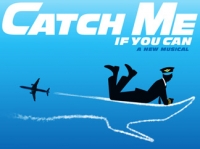
Catch Me If You Can is a musical with a libretto by Terrence McNally and a theatrical score by Marc Shaiman and Scott Wittman. It follows the story of a con artist named Frank Abagnale, Jr. A majority of the plot is borrowed from the 2002 film of the same name, which in turn was based on Abagnale's 1980 autobiography.
After a tryout musical performance in Seattle in 2009, Catch Me If You Can opened at Broadway's Neil Simon Theatre in April 2011. The production received four Tony Awards nominations, including one for Best Musical, winning Best Actor in a Musical for Norbert Leo Butz.
After a tryout musical performance in Seattle in 2009, Catch Me If You Can opened at Broadway's Neil Simon Theatre in April 2011. The production received four Tony Awards nominations, including one for Best Musical, winning Best Actor in a Musical for Norbert Leo Butz.
Claude Joseph Rouget de Lisle
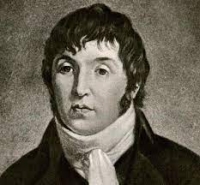
Claude Joseph Rouget de Lisle, sometimes spelled de l'Isle or de Lile, was a French army officer of the French Revolutionary Wars. He is known for writing the words and music of the Chant de guerre pour l'armée du Rhin in 1792, which would later be known as La Marseillaise and become the French national anthem.
Yanni
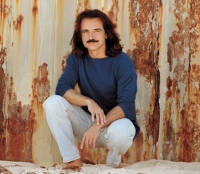
Yanni (born Yiannis Hrysomallis (pronounced Chrysomallis), (Greek: Γιάννης Χρυσομάλλης, classical transcription Giannis Chrysomallis), on November 14, 1954 in Kalamata, Greece) is a self-taught pianist, keyboardist, and composer. After receiving a B.A. in psychology, he would instead seek a life in music though he had no formal training and could not read a note.
He earned Grammy nominations for his 1992 album, Dare to Dream, and the 1993 follow-up, In My Time. His breakthrough success came with the 1994 release of Yanni Live at the Acropolis, deemed to be the second best-selling music video of all time, (behind Michael Jackson's video for Thriller with nine million units). Yanni has since performed live in concert before in excess of two million people in more than 20 countries around the world. He has accumulated more than 35 platinum and gold albums globally, with sales totaling over 20 million copies. Yanni is considered to be one of the top fundraisers of all time for public television. His compositions have been included in all Olympic Games television broadcasts since 1988, and his music has been used extensively in television and televised sporting events. His music is frequently described as "new age", though he prefers the term "contemporary instrumental". The regents of the University of Minnesota conferred upon Yanni the honorary degree of Doctor of Humane Letters.
He earned Grammy nominations for his 1992 album, Dare to Dream, and the 1993 follow-up, In My Time. His breakthrough success came with the 1994 release of Yanni Live at the Acropolis, deemed to be the second best-selling music video of all time, (behind Michael Jackson's video for Thriller with nine million units). Yanni has since performed live in concert before in excess of two million people in more than 20 countries around the world. He has accumulated more than 35 platinum and gold albums globally, with sales totaling over 20 million copies. Yanni is considered to be one of the top fundraisers of all time for public television. His compositions have been included in all Olympic Games television broadcasts since 1988, and his music has been used extensively in television and televised sporting events. His music is frequently described as "new age", though he prefers the term "contemporary instrumental". The regents of the University of Minnesota conferred upon Yanni the honorary degree of Doctor of Humane Letters.
Handel

George Frideric Handel (Friday, 23 February 1685 - Saturday, 14 April 1759) was a German-born Baroque composer who is famous for his operas, oratorios and concerti grossi. Born as Georg Friedrich Handel in Halle, he spent most of his adult life in England, becoming a subject of the British crown on 22 January 1727. His most famous works are Messiah, an oratorio set to texts from the King James Bible; Water Music; and Music for the Royal Fireworks. Strongly influenced by the techniques of the great composers of the Italian Baroque and the English composer Henry Purcell, his music was known to many significant composers who came after him, including Haydn, Mozart, and Beethoven.
Handel's compositions include 42 operas; 29 oratorios; more than 120 cantatas, trios and duets; numerous arias; chamber music; a large number of ecumenical pieces; odes and serenatas; and sixteen organ concerti. His most famous work, the Messiah oratorio with its "Hallelujah" chorus, is among the most popular works in choral music and has become a centerpiece of the Christmas season. Also popular are the Opus 3 and 6 Concerti Grossi, as well as "The Cuckoo and the Nightingale", in which birds are heard calling during passages played in different keys representing the vocal ranges of two birds. Also notable are his sixteen keyboard suites, especially The Harmonious Blacksmith.
Handel introduced various previously uncommon musical instruments in his works: the viola d'amore and violetta marina (Orlando), the lute (Ode for St. Cecilia's Day), three trombones (Saul), clarinets or small high cornets (Tamerlano), theorbo, French horn (Water Music), lyrichord, double bassoon, viola da gamba, bell chimes, positive organ, and harp (Giulio Cesare, Alexander's Feast).
Handel's compositions include 42 operas; 29 oratorios; more than 120 cantatas, trios and duets; numerous arias; chamber music; a large number of ecumenical pieces; odes and serenatas; and sixteen organ concerti. His most famous work, the Messiah oratorio with its "Hallelujah" chorus, is among the most popular works in choral music and has become a centerpiece of the Christmas season. Also popular are the Opus 3 and 6 Concerti Grossi, as well as "The Cuckoo and the Nightingale", in which birds are heard calling during passages played in different keys representing the vocal ranges of two birds. Also notable are his sixteen keyboard suites, especially The Harmonious Blacksmith.
Handel introduced various previously uncommon musical instruments in his works: the viola d'amore and violetta marina (Orlando), the lute (Ode for St. Cecilia's Day), three trombones (Saul), clarinets or small high cornets (Tamerlano), theorbo, French horn (Water Music), lyrichord, double bassoon, viola da gamba, bell chimes, positive organ, and harp (Giulio Cesare, Alexander's Feast).
Radiohead

Radiohead are an English alternative rock band from Oxfordshire. The band is composed of Thom Yorke (lead vocals, rhythm guitar, piano, electronics), Jonny Greenwood (lead guitar, other instruments), Ed O'Brien (guitar, backing vocals), Colin Greenwood (bass guitar, synthesisers) and Phil Selway (drums, percussion). Since 1993, Radiohead have released seven studio albums. The band have sold over 25 million albums as of 2007.
Radiohead released their first single, "Creep", in 1992. Their debut album, Pablo Honey, followed in 1993. "Creep" was initially unsuccessful, but the song became a worldwide hit when reissued a year later, and the band were almost branded as one hit wonders. Radiohead's popularity in the United Kingdom increased with the release of their second album, The Bends (1995). The band's textured guitar atmospheres and Yorke's falsetto singing were warmly received by critics and fans. Radiohead's third album, OK Computer (1997), propelled the band to greater fame worldwide. Featuring an expansive sound and themes of alienation from the modern world, OK Computer has often been acclaimed as a landmark record of the 1990s.
The release of Kid A (2000) and Amnesiac (2001) saw Radiohead reach the peak of their popularity, although the albums divided critical opinion. This period marked a change in Radiohead's musical style, with their incorporation of avant-garde electronic music, Krautrock and jazz influences. Hail to the Thief (2003), which mixed guitar-driven rock with electronics and contemporary lyrics, was the band's final album for their record label, EMI. Radiohead's seventh album, In Rainbows (2007), was first released independently as a digital download for which customers selected their own price, later meeting with critical and chart success.
Radiohead released their first single, "Creep", in 1992. Their debut album, Pablo Honey, followed in 1993. "Creep" was initially unsuccessful, but the song became a worldwide hit when reissued a year later, and the band were almost branded as one hit wonders. Radiohead's popularity in the United Kingdom increased with the release of their second album, The Bends (1995). The band's textured guitar atmospheres and Yorke's falsetto singing were warmly received by critics and fans. Radiohead's third album, OK Computer (1997), propelled the band to greater fame worldwide. Featuring an expansive sound and themes of alienation from the modern world, OK Computer has often been acclaimed as a landmark record of the 1990s.
The release of Kid A (2000) and Amnesiac (2001) saw Radiohead reach the peak of their popularity, although the albums divided critical opinion. This period marked a change in Radiohead's musical style, with their incorporation of avant-garde electronic music, Krautrock and jazz influences. Hail to the Thief (2003), which mixed guitar-driven rock with electronics and contemporary lyrics, was the band's final album for their record label, EMI. Radiohead's seventh album, In Rainbows (2007), was first released independently as a digital download for which customers selected their own price, later meeting with critical and chart success.
Delibes
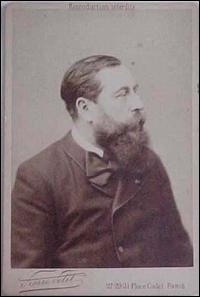
Clément Philibert Léo Delibes (21 February 1836 – 16 January 1891) was a French composer of ballets, operas, and other works for the stage.
Louis Armstrong
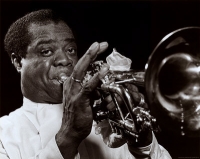
Louis Armstrong (4 August 1901 – July 6, 1971), nicknamed Satchmo or Sachimo and Pops, was an American jazz trumpeter and singer.
Coming to prominence in the 20s as an innovative cornet and trumpet virtuoso, Armstrong was a foundational influence on jazz, shifting the music's focus from collective improvisation to solo performers. With his distinctive gravelly voice, Armstrong was an influential singer, demonstrating great dexterity as an improviser, bending the lyrics and melody of a song for expressive purposes. He was also greatly skilled at scat singing, or wordless vocalizing.
Renowned for his charismatic stage presence, Armstrong's influence extended well beyond jazz, and by the end of his career in the '60s, he was widely regarded as a profound influence on popular music in general: critic Steve Leggett describes Armstrong as "perhaps the most important American musician of the 20th century."
Coming to prominence in the 20s as an innovative cornet and trumpet virtuoso, Armstrong was a foundational influence on jazz, shifting the music's focus from collective improvisation to solo performers. With his distinctive gravelly voice, Armstrong was an influential singer, demonstrating great dexterity as an improviser, bending the lyrics and melody of a song for expressive purposes. He was also greatly skilled at scat singing, or wordless vocalizing.
Renowned for his charismatic stage presence, Armstrong's influence extended well beyond jazz, and by the end of his career in the '60s, he was widely regarded as a profound influence on popular music in general: critic Steve Leggett describes Armstrong as "perhaps the most important American musician of the 20th century."
Park Bo Young

Park Bo-young (Korean: 박보영; Hanja: 朴寶英, born February 12, 1990) is a South Korean actress. She is best known for her leading roles in the hit films Scandal Makers (2008), A Werewolf Boy (2012) and On Your Wedding Day (2018), and the television series Oh My Ghost (2015), Strong Girl Bong-soon (2017), Abyss (2019), Doom at Your Service (2021), and Daily Dose of Sunshine (2023)
Randy Newman
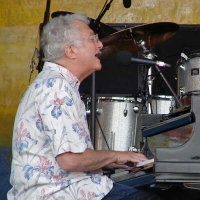
Randall Stuart “Randy” Newman (born November 28, 1943) is an American singer/songwriter, arranger, composer, and pianist who is notable for his mordant (and often satirical) pop songs and for his many film scores.
Newman is noted for his practice of writing lyrics from the perspective of a character far removed from Newman's own biography. For example, the 1972 song "Sail Away" is written as a slave trader's sales pitch to attract slaves, while the narrator of "Political Science" is a U.S. nationalist who complains of worldwide ingratitude toward America and proposes a brutally ironic final solution. One of his biggest hits, "Short People" was written from the perspective of "a lunatic" who hates short people. Since the 1980s, Newman has worked mostly as a film composer. His film scores include Ragtime, Awakenings, The Natural, Leatherheads, James and the Giant Peach, Meet the Parents and Seabiscuit. He has scored five Disney-Pixar films: Toy Story, A Bug's Life, Toy Story 2, Monsters, Inc. and Cars. Most recently he scored Princess and the Frog and is set to return for Toy Story 3 and Cars 2.
He has been singled out for a number of awards by his colleagues, including an Academy Award, two Emmy Awards, four Grammy Awards, and the Governor's Award from the Recording Academy. Randy Newman was inducted into the Songwriters Hall of Fame in 2002. In 2007, Newman was inducted as a Disney Legend.
Newman is noted for his practice of writing lyrics from the perspective of a character far removed from Newman's own biography. For example, the 1972 song "Sail Away" is written as a slave trader's sales pitch to attract slaves, while the narrator of "Political Science" is a U.S. nationalist who complains of worldwide ingratitude toward America and proposes a brutally ironic final solution. One of his biggest hits, "Short People" was written from the perspective of "a lunatic" who hates short people. Since the 1980s, Newman has worked mostly as a film composer. His film scores include Ragtime, Awakenings, The Natural, Leatherheads, James and the Giant Peach, Meet the Parents and Seabiscuit. He has scored five Disney-Pixar films: Toy Story, A Bug's Life, Toy Story 2, Monsters, Inc. and Cars. Most recently he scored Princess and the Frog and is set to return for Toy Story 3 and Cars 2.
He has been singled out for a number of awards by his colleagues, including an Academy Award, two Emmy Awards, four Grammy Awards, and the Governor's Award from the Recording Academy. Randy Newman was inducted into the Songwriters Hall of Fame in 2002. In 2007, Newman was inducted as a Disney Legend.
Nightwish

Nightwish is a Finnish rock quintet, formed in 1996 in the town of Kitee, Finland. Nightwish is considered one of the bands responsible for the development and rise in popularity of symphonic metal at the end of the 1990s, as well as the creation of the subgenre symphonic power metal.
Although they have been prominent in their home country since the release of their first single, “The Carpenter” (1997) and debut album Angels Fall First, they did not achieve worldwide fame until the release of the albums Oceanborn, Wishmaster and Century Child, which were released in 1998, 2000 and 2002 respectively. Their 2004 album, Once, which was sold over than 4 million copies, led to Nightwish video clips being shown on MTV in the United States and inclusion of their music in U.S. movie soundtracks. Their biggest U.S. hit single, “Wish I Had an Angel” (2004), made it onto three U.S. film soundtracks as a means to promote their North American tour. The band produced three more singles and two music videos for the album, as well as “Sleeping Sun”, from the 2005 “best of” compilation album, Highest Hopes, prior to vocalist Tarja Turunen’s dismissal.
In May 2007, former Alyson Avenue frontwoman, Swede Anette Olzon, was revealed as Turunen’s replacement, and in the autumn, the band released a new album Dark Passion Play, which was sold over 2 million copies. A tour supporting the album is currently in progress.
Although they have been prominent in their home country since the release of their first single, “The Carpenter” (1997) and debut album Angels Fall First, they did not achieve worldwide fame until the release of the albums Oceanborn, Wishmaster and Century Child, which were released in 1998, 2000 and 2002 respectively. Their 2004 album, Once, which was sold over than 4 million copies, led to Nightwish video clips being shown on MTV in the United States and inclusion of their music in U.S. movie soundtracks. Their biggest U.S. hit single, “Wish I Had an Angel” (2004), made it onto three U.S. film soundtracks as a means to promote their North American tour. The band produced three more singles and two music videos for the album, as well as “Sleeping Sun”, from the 2005 “best of” compilation album, Highest Hopes, prior to vocalist Tarja Turunen’s dismissal.
In May 2007, former Alyson Avenue frontwoman, Swede Anette Olzon, was revealed as Turunen’s replacement, and in the autumn, the band released a new album Dark Passion Play, which was sold over 2 million copies. A tour supporting the album is currently in progress.
Lea Salonga

Lea Salonga (born on February 22, 1971 in the Philippines) is a Filipina singer and actress who is best known for her musical role in Miss Saigon. In the field of musical theatre, she is recognized for having won the Olivier, Tony, Drama Desk, Outer Critics, and Theatre World Awards, the first to win various international awards for a single role. She was also the first Asian to play Eponine in the musical Les Misérables on Broadway.
Salonga is the singing voice of Princess Jasmine from Aladdin in 1992 and Fa Mulan for Mulan and Mulan II in 1998 and in 2004, respectively.
Salonga is the singing voice of Princess Jasmine from Aladdin in 1992 and Fa Mulan for Mulan and Mulan II in 1998 and in 2004, respectively.
Professor Longhair
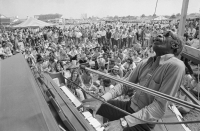
Henry Roeland "Roy" Byrd (December 19, 1918 – January 30, 1980), better known as Professor Longhair or "Fess" for short, was a New Orleans blues singer and pianist. He was active in two distinct periods, first in the heyday of early rhythm and blues and later in the resurgence of interest in traditional jazz after the founding of the New Orleans Jazz and Heritage Festival in 1970. His piano style has been described as "instantly recognizable, combining rumba, mambo, and calypso."
The music journalist Tony Russell (in his book The Blues: From Robert Johnson to Robert Cray) wrote that "The vivacious rhumba-rhythmed piano blues and choked singing typical of Fess were too weird to sell millions of records; he had to be content with siring musical offspring who were simple enough to manage that, like Fats Domino or Huey "Piano" Smith. But he is also acknowledged as a father figure by subtler players like Allen Toussaint and Dr. John."
The music journalist Tony Russell (in his book The Blues: From Robert Johnson to Robert Cray) wrote that "The vivacious rhumba-rhythmed piano blues and choked singing typical of Fess were too weird to sell millions of records; he had to be content with siring musical offspring who were simple enough to manage that, like Fats Domino or Huey "Piano" Smith. But he is also acknowledged as a father figure by subtler players like Allen Toussaint and Dr. John."
Hermeto Pascoal
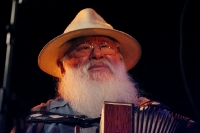
Hermeto Pascoal (born June 22, 1936) is a Brazilian composer and multi-instrumentalist. He was born in Lagoa da Canoa, Alagoas, Brazil. Pascoal is a significant figure in the history of Brazilian music, mainly known for his abilities in orchestration and improvisation, as well as being a record producer and contributor to many Brazilian and international albums.
Laura Pausini

Laura Pausini (born May 16, 1974) is an Italian pop singer, popular in several European, Latin American, and Middle Eastern countries, famed for her powerful voice, her romantic adult contemporary ballads and love songs. She is fluent in several languages and has recorded songs in Italian, Spanish and English. She has also recorded some songs in Portuguese, a language of which she has a good (but not excellent) knowledge, and French, which she does not speak at all. At the 2006 Grammy Awards, Pausini won Best Latin Pop Album for Escucha.
Kenny rogers
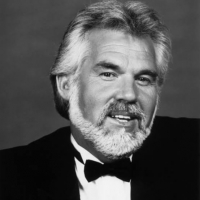
Kenneth Ray "Kenny" Rogers is an American country and country pop singer, music writer and actor. He has been continuing his music studies since 1958. Since 1977, he has been awarded music awards several times, notably the Grammy.
Rachmaninoff

Sergei Vasilievich Rachmaninoff (1 April 1873 - 28 March 1943) was a Russian composer, pianist, and conductor. He was one of the finest pianists of his day and, as a composer, the last great representative of Russian late Romanticism in classical music. Early influences of Tchaikovsky, Rimsky-Korsakov and other Russian composers gave way to a thoroughly personal idiom which included a pronounced lyricism, expressive breadth, structural ingenuity and a tonal palette of rich, distinctive orchestral colors.
Understandably, the piano figures prominently in Rachmaninoff's compositional output, either as a solo instrument or as part of an ensemble. He made it a point, however, to use his own skills as a performer to explore fully the expressive possibilities of the instrument. Even in his earliest works, he revealed a sure grasp of idiomatic piano writing and a striking gift for melody. In some of his early orchestral pieces he showed the first signs of a talent for tone painting, which he would perfect in The Isle of the Dead, and he began to show a similar penchant for vocal writing in two early sets of songs, Opp. 4 and 8. Rachmaninoff's masterpiece, however, is his choral symphony The Bells, in which all of his talents are fused and unified.
Rachmaninoff sometimes felt threatened by the success of modernists such as Scriabin and Prokofiev and wondered whether to cease composing even before he left Russia. His musical philosophy was rooted in the Russian spiritual tradition, where the role of the artist was to create beauty and to speak the truth from the depths of his heart. In his last major interview, in 1941, he admitted his music, like Russian music, was a product of his temperament. He said, on another occasion, "The new kind of music seems to create not from the heart but from the head. Its composers think rather than feel. They have not the capacity to make their works exalt—they meditate, protest, analyze, reason, calculate and brood, but they do not exalt."
Understandably, the piano figures prominently in Rachmaninoff's compositional output, either as a solo instrument or as part of an ensemble. He made it a point, however, to use his own skills as a performer to explore fully the expressive possibilities of the instrument. Even in his earliest works, he revealed a sure grasp of idiomatic piano writing and a striking gift for melody. In some of his early orchestral pieces he showed the first signs of a talent for tone painting, which he would perfect in The Isle of the Dead, and he began to show a similar penchant for vocal writing in two early sets of songs, Opp. 4 and 8. Rachmaninoff's masterpiece, however, is his choral symphony The Bells, in which all of his talents are fused and unified.
Rachmaninoff sometimes felt threatened by the success of modernists such as Scriabin and Prokofiev and wondered whether to cease composing even before he left Russia. His musical philosophy was rooted in the Russian spiritual tradition, where the role of the artist was to create beauty and to speak the truth from the depths of his heart. In his last major interview, in 1941, he admitted his music, like Russian music, was a product of his temperament. He said, on another occasion, "The new kind of music seems to create not from the heart but from the head. Its composers think rather than feel. They have not the capacity to make their works exalt—they meditate, protest, analyze, reason, calculate and brood, but they do not exalt."
 Sheet Music Mobile is a site for those who wants to access popular sheet music easily,
letting them download the sheet music for free for trial purposes.
It's completely free to download and try the listed sheet music, but you have to delete the files after 24 hours of trial.
Don't forget, if you like the piece of music you have just learned playing,
treat the artist with respect, and go buy the original sheet music.
Sheet Music Mobile is a site for those who wants to access popular sheet music easily,
letting them download the sheet music for free for trial purposes.
It's completely free to download and try the listed sheet music, but you have to delete the files after 24 hours of trial.
Don't forget, if you like the piece of music you have just learned playing,
treat the artist with respect, and go buy the original sheet music.